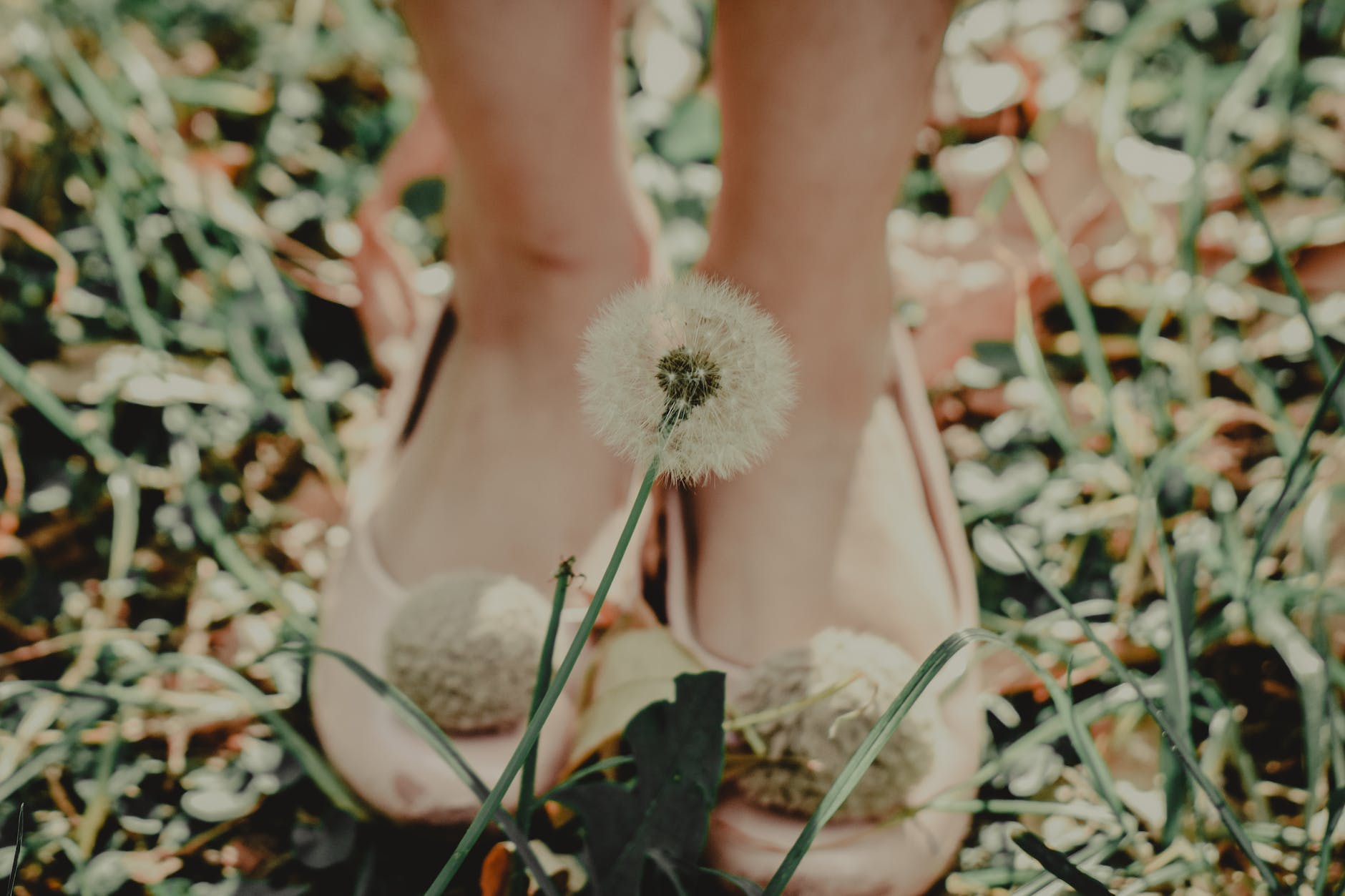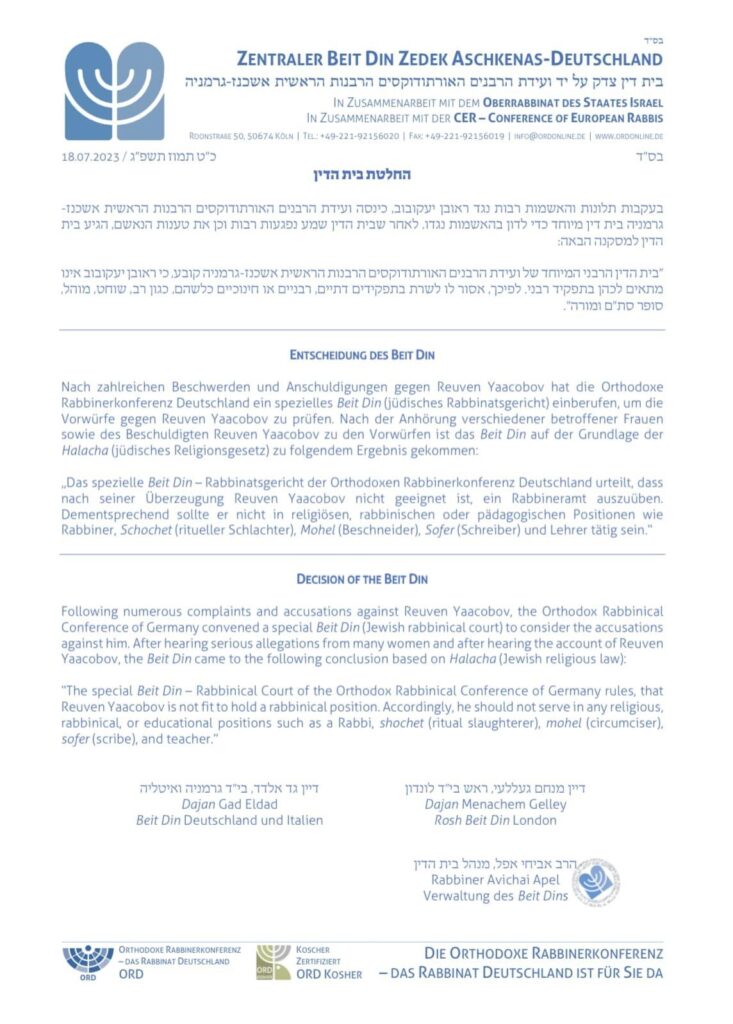
I criticise rabbis a lot. Often I am not happy about their decisions, their missing compassion, their unwillingness to put themselves into another person’s position, and most of the time this other person is a woman. I speak out, I challenge them. I’ve had my fights with a few of them and while we all remain civil and act like adults, my experiences are not forgotten.
The rabbis, and other (male, but not often) leaders of the Jewish world, as well as what Judaism is today, are the reasons I started this blog. And while there are many posts in my drafts, I have finally found the motivation to write again.
This time the motivation is not frustration, anger, irritation, or ressentment. Right now, and for the last few weeks, I have been impressed. I am pleasently surprised by the ORD – Orthodoxe Rabbinerkonferenz Deutschland – , the German Orthodox Rabbinical Court. I am also delighted about specific rabbis, their words, and their courage to actually speak publicly.
On Thursday, June 15th 2023, JTA published a long article in English. They wrote about a “rabbi” in Berlin who had been fired because of alligations that he preyed on young women. In the following weeks more information unfolded and people kept speaking up, sharing about it on social media.
Articles by The Times of Israel and the Jerusalem Post
But also the Berliner Zeitung and Bild Zeitung and of course the Jüdische Allgemeine, just to name a few
Up until today, I have been following the articles, the posts, the comments and the Bet Din’s decision:

I have not been speaking out on any of my social media plattforms, for personal reasons. But I have been trying to raise awareness with friends, family, colleagues and basically everyone who would listen to me. Through all this I have been shocked, but not surprised. Comments like “What were the women wearing?”, “What about ‘innocent until proven guilty?'”, “How can we know it’s all true?”, “How could they have had that happen to them?” and many many more.
As painful as reading these questions on the internet as comments on Facebook, Twitter, Instagram was, most of these people are strangers. But what was worse, were the people I spoke to in person. The (mostly) men, who needed to be explained that there’s no fame for a woman to speak up about being sexually assulted or taken advantage of. Explaining to these people how much courage it must have taken for these women to actually admit to something horrible and traumatic happening to them. Adding to that the fact these women still are part of the orthodox Judasim, where it might be a stigma – for the women, not the “rabbi” – still those brave women decided to speak up, not be intimidated by his threats, some of them without the support of their family. It takes a lot to be that strong.
Why men can only begin to see it after a long, frustrating explanation, astonishes me.
What changed? What motivated me to not only repost all that was said, but write my own post?
In the days leading up to Tisha BeAv, the saddest day in the Jewish calender, I have been following the Instagram stories of Shoshanna Keats Jaskoll, who I have admired for a long time, and of FlatBushGirl. Both have been posting about agunot, chained women; the abusive men, who refuse to grant their wives a Jewish divorce; and the Batei Din and rabbis, who are willing collaborators in extorting women, shaming them, and keeping them chained.
We can say “not all men” all we want. But the German Bet Din and many of their rabbis did speak up, listened to the women, allowed the women to be heard and believed, and continue to advocate for them. This might seem like the only right thing they could’ve done and I like to believe that is exactly what they felt, but we all know, from experince or other cases or simply the reactions this case had on- and offline, it sadly is not.
What would a Jewish world look like, if more rabbis, Jewish leaders and Batei Din would act more compassionate, thoughtful and supportive?
Your post is both moving and eye-opening. It’s heartening to see the German Beis Din and certain rabbis standing up for what’s right. Your call for compassion and understanding in our community is something we should all echo. Thank you for shedding light on this critical issue. Keep speaking out; your voice is vital.